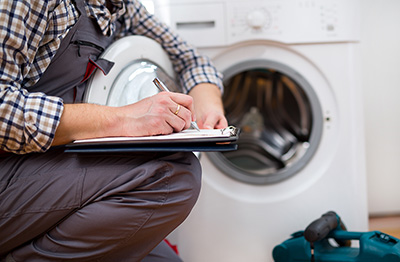Should You Repair or Replace an Old Appliance?
Last updated May 2023
 Your seven-year-old dryer isn’t working. The estimate to repair it is $300. Do you fix it or buy a new one?
Your seven-year-old dryer isn’t working. The estimate to repair it is $300. Do you fix it or buy a new one?
Lists pop up all the time showing the lifespans of major appliances, and you may have read that around 10 years is typical for a dryer. So why spend $300 for three more years when a new dryer costs $800? To decide whether to repair or replace any appliance, consider how much time your investment is likely to buy—but be aware that published lifespans can be misleading.
First, published lifespan numbers are averages. If your appliance is already seven years old, it’s likely to last longer than 10 years. Small households that use appliances lightly can expect longer-than-average lifespans. And because lifespans of appliance models are all over the map, a well-built appliance with few fancy controls might last much longer than its less durable, more high-tech counterparts.
Second, many owners replace old appliances with new units because they want different features, a new color, or another size; don’t want to move it to a new house; or want to get rid of the machine for reasons unrelated to durability. Some might even be jettisoned because owners misuse published lifespans to prematurely condemn their appliances to the junk heap. If you are happy with your dryer, and there are no signs of rust or other visible flaws, these factors are irrelevant.
Also, just because one element of your appliance breaks doesn’t necessarily mean others will fail. Things break, even on new appliances. A model with no visible damage besides the issue you are fixing might last many years without other problems—and the next problem also might require only a reasonably priced repair. Many major appliances, including relatively inexpensive models—which may cost less because they have few extra (and failure-prone) controls—keep drying, washing, or chilling for years.
If you are considering replacing an appliance as a bulwark against future breakdowns, remember that appliance problems are generally inconvenient, not disastrous. The worst possible catastrophe is flooding caused by the failure of a clothes washer’s supply hoses or a dishwasher’s shut-off valve (see the facing page), and those are very unlikely.
There are, of course, good reasons for replacing broken appliances. You might like the features and looks of new appliances—a washer or dishwasher that operates more quietly, a fancy range with induction heat, or a refrigerator with more storage capacity.
Governments and utility companies are increasingly offering incentives to encourage consumers to swap out old energy-hogging or polluting appliances with new more eco-friendly models. And the federal government is now offering generous rebates to incentivize replacing gas stoves with electric models.
If your washer, dryer, dishwasher, or stove is working fine, but you want to replace it purely for energy-usage concerns, it makes some sense to do some math first. Some new appliances (especially dryers) aren’t that much more energy efficient than those made a decade ago; even clothes washers and dishwashers, which have made environmental strides, won’t make a big difference in energy use if you do only a few loads a week. On the other hand, you’ll do the world—and your electric bill—a big favor by getting rid of any old extra fridges or freezers.
In short, the repair-or-replace decision is not always easy; it’s often a balancing act.


